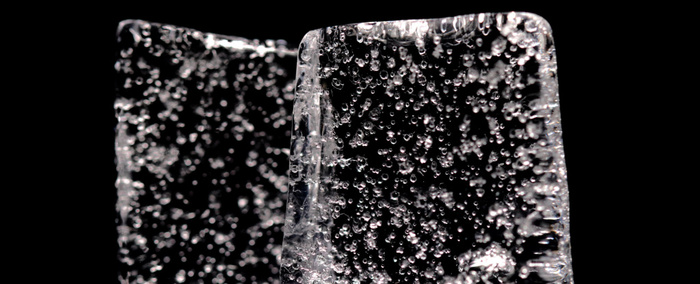Enlarge image
Photo: Ric Tapia / AP
Gigantic ice masses rest on the seventh continent.
But the Antarctic tank is shrinking.
According to the Intergovernmental Panel on Climate Change, around 155 gigatons were lost per year between 2006 and 2015 alone - that's roughly three times the volume of water in Lake Constance.
If global warming continues unabated, the Antarctic shelf ice in particular that surrounds this tank could melt.
British scientists warn that more than a third could disappear permanently if average temperatures on earth rise by four degrees.
In this way "unimaginable amounts of water" could be released.
The study published in the journal Geophysical Research Letters assumes that shelf ice giants like Larsen C, Wilkins, Pine Island and Shackleton could irreversibly collapse at four degrees.
Ice sheets floating on the sea are referred to as shelf ice, which are fed by glaciers, for example, and are connected to the Antarctic land mass.
"The shelf ice is an important buffer to prevent glaciers on land from flowing freely into the ocean and contributing to sea-level rise," explains Ella Gilbert, co-author and researcher at the Department of Meteorology at Reading University.
"When they collapse, it's like removing a giant cork from a bottle, causing unimaginable amounts of water to flow from glaciers into the sea."
Limiting the temperature rise to two degrees compared to the pre-industrial age could at least contain this dangerous tipping point.
In this case, only half of the assumed melt would take place, the researchers estimate.
At the beginning of April a study appeared on the huge Pine Island Glacier, which makes up around ten percent of the ice in West Antarctica.
Researchers at Northumbria University in the UK warned that the glacier could already be at a point where it could no longer be prevented from melting.
The slow collapse from below
The main contributing factor to the instability of the Pine Island ice sheet is the warming of the seawater near the glacier.
If this heats up permanently by more than 1.2 degrees Celsius, this could mean the retreat of the entire glacier, according to the study authors.
The ice giants in the Antarctic are currently particularly affected by warm ocean currents.
This was also investigated by an international team of researchers on the Thwaites Glacier.
Together with the Pine Island Glacier, it prevents the much larger West Antarctic ice sheet from flowing into the sea.
Based on measurements of the water temperature, the salt and oxygen content below the Thwaites Glacier, the scientists were able to draw initial conclusions about the melting process: The warm water currents come from many sides, but especially from the direction of Pine Island Bay - where the Pine Island -Glacier lies.
It gets into the cavities below the ice giant and there it contributes to the melt.
In the longer term, the warm ocean currents can lead to the collapse of the Thwaites Glacier, the researchers write in the study, which was published on Friday in the weekly magazine of the American Association for the Advancement of Sciences (AAAS).
The sea level is rising
The more ice melts on the polar ice caps, the more the sea level rises - and in the long term endangers millions of coastal residents worldwide.
The ice of the southern continent alone stores more than half of the fresh water on earth.
If it thawed completely, the global sea level would rise by around 58 meters.
That is not to be expected at first, but one to two meters are enough for catastrophic conditions on inhabited coastal areas.
How fast the water will rise in the future depends on many factors - even researchers have so far only been able to roughly determine the damage.
So far, however, the Intergovernmental Panel on Climate Change has corrected its forecasts for sea level rise up rather than down.
The British researcher Ella Gilbert says: "If temperatures continue to rise at the current rates, we could lose more and more shelf ice in Antarctica in the coming decades."
In any case, its preservation meant less global sea level rise.
"And that's good for all of us."





